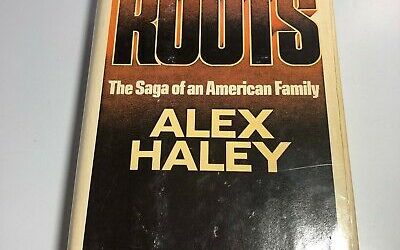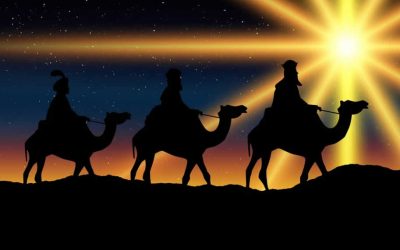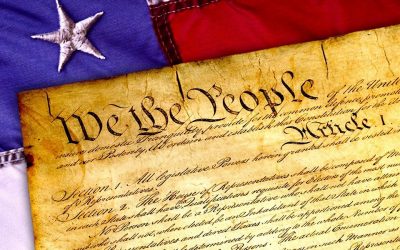By William H. Benson
The Parallel Lives
Of The NOBLE AMERICAN RELIGIOUS THINKERS AND BELIEVERS:
Roger Williams VS. Cotton Mathers
NEW ARTICLES
Alexander Hamilton vs. Thomas Jefferson
Also, in April, both houses of Congress held a quorum and began to legislate.
In New York City, in April 1789, a new government, a republic, took its first small steps.
For his cabinet, Washington selected Thomas Jefferson, Secretary of State; Alexander Hamilton, Secretary of Treasury; Henry Knox, Secretary of War; and Edmund Randolph, Attorney General. At the onset, Jefferson clashed with Hamilton. Soon, they hated each other.
Hamilton, then 34, was from New York City, was an urban and brash financial risk-taker.
Jefferson, then 46, was from Virginia, was an agrarian, cerebral, bookish, a slave-owner.
From a high school text, I read, “American political parties date their birth from the bitter clashes between Hamilton and Jefferson over fiscal policy and foreign affairs.”
Those who agreed with Hamilton coalesced into a Federalist party. They included Washington and Adams, plus the Chief Justice of the Supreme Court John Jay, who said at the time, “Those who own the country ought to govern it.”
The Federalists demanded “rule by the best people,” an exclusion of the masses, a powerful central government, weakened state governments, a loose interpretation of the Constitution, policies to foster business, a protective tariff, a national debt, an expanding bureaucracy.”
Those who agreed with Jefferson coalesced into a Democratic-Republican party, and they included James Madison, Southern slave owners, farmers, small shop owners, and artisans.
The Democratic-Republicans demanded “rule by the informed masses,” an extension of democracy, a weak central government, strict interpretation of the Constitution, no national debt, a reduction of federal officeholders, policies that favored farmers, free speech, a free press.
Hamilton vs. Jefferson; Federalist vs. Democratic-Republican. “Political parties won control of the machinery of the Electoral College for presidential elections, and the Electoral College became henceforth a rubber stamp.” The two-party system continues today.
Hamilton wanted the new federal government to assume the thirteen states’ debts incurred during the Revolutionary War. His view prevailed. In 1802, Jefferson wrote, “We can pay off his [Hamilton’s] debt in fifteen years, but we can never get rid of his financial system.”
Next, Hamilton wanted a national bank. Congress hotly debated it, but it passed, and was sent to Washington for his signature. The President asked Jefferson and Hamilton for their thoughts.
Jefferson argued against a bank. He cited the Tenth Amendment. “All powers not delegated to the U.S. by the Constitution are reserved to the states, or to the people.” The states have the right.
Hamilton argued for a bank in a document he submitted to Washington on February 23, 1791, entitled, “Opinion on the Constitutionality of the Bank.”
In it, Hamilton rejected Jefferson’s strict interpretation of the Constitution, and wrote that “the powers ought to be construed liberally in advancement of the public good.”
He underscored Article 1, Section 8, Line 18, that reads, Congress holds the power, “To make all laws which shall be ‘necessary and proper’ for carrying into execution the foregoing powers.”
The words “necessary and proper,” now called the “elastic clause,” have “set a precedent for enormous federal powers,” that have unfolded since.
Washington agreed with Hamilton’s argument and two days later, on February 25, 1791, he signed into law the first national bank. Jefferson resigned as Secretary of State on December 13, 1793, fed up with Hamilton, who resigned as Secretary of State a year later on January 31, 1795.
Truth vs. lies
It might be fabricated, but a story I heard years ago was that Bill Cosby warned a young Oprah Winfrey, to “always balance your own check book.” In other words, he cautioned her to trust only herself, and not any paid employee, with that simple task.
Another piece of advice for the up-and-coming, who are now, after years of struggle, experiencing some success, “Do not believe your own press reports.” In other words, no matter how wonderful and great the journalists and reporters say you are, keep in reserve some small measure of humility.
A tale of two cities
A quote I read years ago said, “The family surname of the betrothed says much about the success of the marriage.” That idea may come near to a singular truth in a general way, despite plenty of examples to contradict it. Yet, I dare suggest something similar, but in a political sense.
How a man or woman identifies his or her citizenship–to what city he or she claims allegiance–tells much about his or her innermost thoughts, ideas, conclusions, and reasoning skills. In other words, tell me the name of your city, and I can predict the ideas that you think and believe.
Yet, not always. Again, outliers who think for themselves.
There were two cities in ancient Greece: Athens and Sparta. The Athenians practiced trade, they valued art and culture, and they ruled themselves by democracy of voters, legislators, and written laws. The Spartans though encouraged a militant society, based on farming and conquering.
Irish Wit
The Irish have their own way of seeing the world. The American poet Marianne Moore said as much in six words. “I’m troubled. I’m dissatisfied. I’m Irish.”
Frank McCourt said the same, but in more words, on the first page of his memoir, Angela’s Ashes.
“It was, of course, a miserable childhood: the happy childhood is hardly worth your while. Worse than the ordinary miserable childhood is the miserable Irish childhood, and worse yet is the miserable Irish Catholic childhood.
Freeze-up in Ottawa
Kathrene and Robert Pinkerton married in 1911. He worked at a newspaper in a big city: long hours, deadlines, and stress. A doctor advised him to “get out of newspaper offices and out of cities,” if he wanted to preserve his health. He decided he would write fiction—short stories—and sell them.
When single, Robert had worked as a logger and fur trader in Ottawa’s woods,
Immigration
With high school diploma in hand, a young African from Ghana named Robert Kosi Tette came to the United States in 1998, leaving behind family, friends, and “a simple life of blissful innocence.”
Ten years later, he described his decade in America, in an article that appeared in the March 1, 2008 issue of Newsweek, that he entitled “An Immigrant’s Silent Struggle.”
Abraham Lincoln’s farewell to Springfield
A favorite Lincoln biographer of mine is Carl Sandburg. In 1926, he published a two-volume work, Abraham Lincoln, The Prairie Years, and then in 1939, he published a four-volume work, Abraham Lincoln, The War Years. This latter work won Sandburg the Pulitzer Prize for History in 1940.
Older Posts
Alex Haley and Roots
Roots, by Alex Haley, the television miniseries, aired over eight nights, from Sunday, January 23, through Sunday, January 30, in 1977, forty-five years ago. It proved wildly successful, despite ABC executives’ fears about showing white men kidnapping, buying, selling, and whipping black men, and women.
Insurrection on the Capitol: January 6, 2021
Donald Trump lost the 2020 election on Nov. 3, 2020. Although some 74.2 million voters voted for him, 81.2 voted for Biden, a difference of over 7.0 million. Then, Biden won 306 electoral votes to Trump’s 232. Despite those facts, Donald Trump vowed he would never concede.
Stars
The one constellation I can identify without much effort is Ursa Major, “the greater or larger Bear,” or the Big Dipper, in the northern sky.
Last time in these pages, I talked about Ralph Waldo Emerson’s fruit trees, and that the wise men, who came from the east to Judea, came bearing expensive gifts, three minerals, and yet today we give three types of foods—fruits, nuts, and sweets—to our children on Christmas Day.
Fruits
In 1905, the USDA published a bulletin: Nomenclature of the Apple: A Catalog, that listed 17,000 names. After removing the duplicate names, it still listed 14,000 different varieties of the apple.
Between Captain John Smith in Jamestown, Virginia, in 1607, and the beginning of the 20th century,
A look at the amendments of the U.S. Constitution
On Sept. 25, 1789, James Madison submitted 12 amendments to the new Constitution. This is the story of what happened to those amendments.
Milton Hershey School, part II
Last time in these pages I began a review of a recent book, Invisible Child: Poverty, Survival and Hope in an American City. Its author, Andrea Elliott, focused on a middle school girl named Dasani, who grew up in a series of New York City housing projects, a step away from homelessness.
After Elliott published an expose in the New York Times on Dasani’s plight, the girl was awarded a scholarship to attend Milton Hershey’s middle school, in Hershey, Pennsylvania. She arrived at the private school in late January of 2015, as a 14-year-old African-American girl, lonely and scared.

One of University of Northern Colorado’s 2020 Honored Alumni
William H. Benson
Local has provided scholarships for history students for 15 years
A Sterling resident is among five alumni selected to be recognized this year by the University of Northern Colorado. Bill Benson is one of college’s 2020 Honored Alumni.
Each year UNC honors alumni in recognition for their outstanding contributions to the college, their profession and their community. This year’s honorees were to be recognized at an awards ceremony on March 27, but due to the COVID-19 outbreak that event has been cancelled. Instead UNC will recognize the honorees in the fall during homecoming Oct. 10 and 11……
Newspaper Columns
The Duodecimal System
For centuries, the ancient Romans calculated sums with their clunky numerals: I, V, X, L, C, D, and M; or one, five, ten, 50, 100, 500, and 1,000. They knew nothing better.
The Thirteenth Amendment
On Jan. 1, 1863, President Abraham Lincoln signed the Emancipation Proclamation, and by it, he declared that “all persons held as slaves” within the rebellious states “are and henceforward shall be free.” Lincoln’s Proclamation freed some 3.1 million slaves within the Confederacy.
The Fourteenth Amendment
After Congress and enough states ratified the thirteenth amendment that terminated slavery, Congress passed the Civil Rights Act of 1866. This law declared that “all people born in the United States are entitled to be citizens, without regard to race, color, or previous condition of slavery or involuntary servitude.” The Act equated birth to citizenship.
The New-York Packet and the Constitution
Jill Lepore, the Harvard historian, published her newest book a month ago, These Truths: A History of the United States. In a short introduction, she describes in detail the Oct. 30, 1787 edition of a semi-weekly newspaper, The New-York Packet.
Mr. Benson’s writings on the U.S. Constitution are a great addition to the South Platte Sentinel. Its inspiring to see the history of the highest laws of this country passed on to others.
– Richard Hogan
Mr. Benson, I cannot thank you enough for this scholarship. As a first-generation college student, the prospect of finding a way to afford college is a very daunting one. Thanks to your generous donation, my dream of attending UNC and continuing my success here is far more achievable
– Cedric Sage Nixon
Donec bibendum tortor non vestibulum dapibus. Cras id tempor risus. Curabitur eu dui pellentesque, pharetra purus viverra.
– Extra Times
FUTURE BOOKS
- Thomas Paine vs. George Whitefield
- Ralph Waldo Emerson vs. Joseph Smith
- William James vs. Mary Baker Eddy
- Mark Twain vs. Billy Graham
- Henry Louis Mencken vs. Jim Bakker












